8 companies that won't have to meet Ontario's new pollution limits
Strict new emission rules coming in July, and more companies seeking exemptions
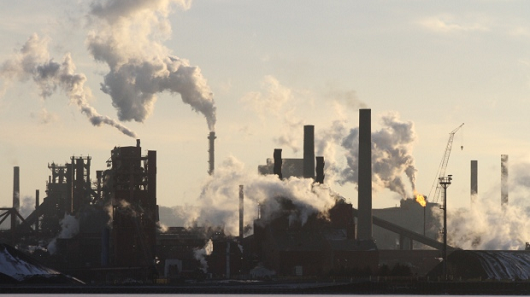 |
| Eight Ontario companies currently have permits that will allow them to emit far more pollution than otherwise permitted by the province's new air-quality standards taking effect in July. Companies are also applying for new exemptions. (John Rieti/CBC) |
The provincial government will be bringing in strict new pollution standards this summer, but some of Ontario's biggest polluters won't be required to meet them.
CBC News has obtained the list of all companies that currently have multi-year exemptions from limits on such pollutants as sulphur dioxide and airborne particles.
The information shows the eight companies — including Ontario's biggest mining company, its biggest smelter and the large steel plants — will be allowed to emit far more pollution than otherwise permitted by the province's tough new air-quality standards, due to take effect July 1.
New provincial limits are being introduced on a range of chemical pollutants, and companies are lining up to seek exemptions.
In some cases, the companies are allowed to emit many times the pollution permitted under the provincial regulations.
- Ontario approves new air standards for steel mills
- Province gives Glencore 10 years to meet new emission limits
The ministry is proposing to exempt the province's biggest steel mills — ArcelorMittal Dofasco in Hamilton, U.S. Steel in Hamilton and Nanticoke, and Essar Algoma in Sault Ste. Marie — from the new limits coming on emissions of benzene and benzo-alpha-pyrene benzene. The proposals would allow mills to exceed some of the limits by as much as 250 times.
"Some industries will not be able to meet the standard right away because of technological limitations," Environment and Climate Change Minister Glen Murray said in a statement Wednesday.
He said companies can apply for exemptions — called "site-specific standards" — for as long as 10 years.
"Site-specific standards still require companies to make improvements and investments in the best available technology and practices to reduce emissions," Murray said.
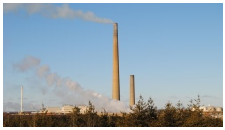 |
| Vale's operation in Sudbury has exemptions to provincial limits on emissions of sulphur dioxide and nickel. (Yvon Theriault/CBC) |
The most recent exemption was granted to Glencore's Sudbury smelter, allowing it to exceed nickel emission limits until June of 2026.
Mining giant Vale also has a similar 10-year exemption, valid until 2021. That permit allows it to emit 25 times more nickel than the new limit of 0.04 micrograms per cubic metre.
The company says its actual emissions are on track to be 0.16 micrograms per cubic metre when it finishes a $1-billion upgrade in 2018. But even that would leave its nickel pollution levels four times higher than the provincial standard.
Concern over 10-year exemptions
The ministry is also proposing to give a 10-year exemption to new limits on hexavalent chromium for the Owens Corning glass plant in Guelph.
Environmental groups have raised concern about 10-year pollution exemptions, which had previously been limited to five years.
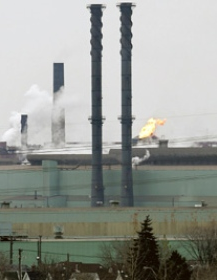 |
| ArcelorMittal Dofasco's steel plant in Hamilton has an exemption to provincial limits on particle emissions and is applying for exemptions to new limits on other pollutions coming in July. |
The longer exemptions "would just allow companies quite a long period of time to effectively operate without making an effort to meet the more stringent standards," said Ramani Nadarajah, counsel with the Canadian Environmental Law Association.
"It removes the incentive for them to make improvements," Nadarajah said in a phone interview Wednesday.
The Environmental Commissioner of Ontario has also urged the government not to issue long exemptions, warning that it could be "watering down" air-quality rules in response to industry pressure.
The exemptions are not blanket. They include provisions requiring companies to reduce their emissions gradually over the term of the permit. For instance, Glencore must reduce its nickel emissions by 60 per cent over the next six years.
Technology 'simply doesn't exist'
Last March, the province granted exemptions to the big steel mills to the limit on "suspended particulate matter," airborne particles such as smoke, dust and ash, until 2020.
The provincial limit is 120 micrograms per cubic metre. The exemption for U.S. Steel in Hamilton allows it to emit more than two-and-a-half times that amount (313 micrograms per cubic metre).
The limit in the province's legislation is set so low that it's impossible for the company to meet it, said Trevor Harris, U.S. Steel Canada's director of government and public affairs. "The emissions reduction technology simply doesn't exist at this time," Harris said in a phone interview.
He said the company has already reduced some of its emissions to below the limits it will be required to meet by the end of the five-year permit.
Windsor's ADM Agri-Industries and Nanticoke's Harsco Metals also currently have five-year exemptions for suspended particulate matter.
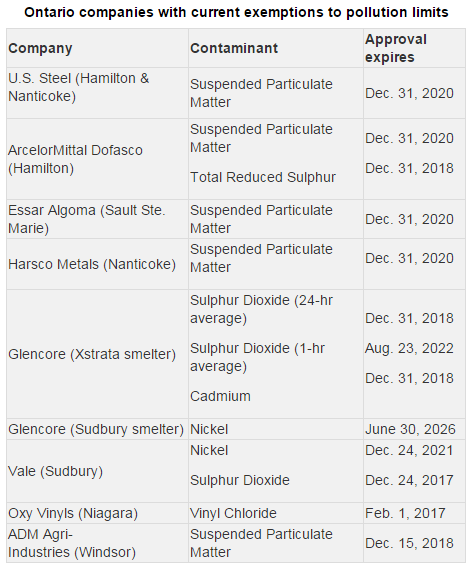
Source: http://www.cbc.ca/news/canada/toronto/ontario-pollution-emissions-exemptions-1.3432090
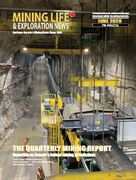
|